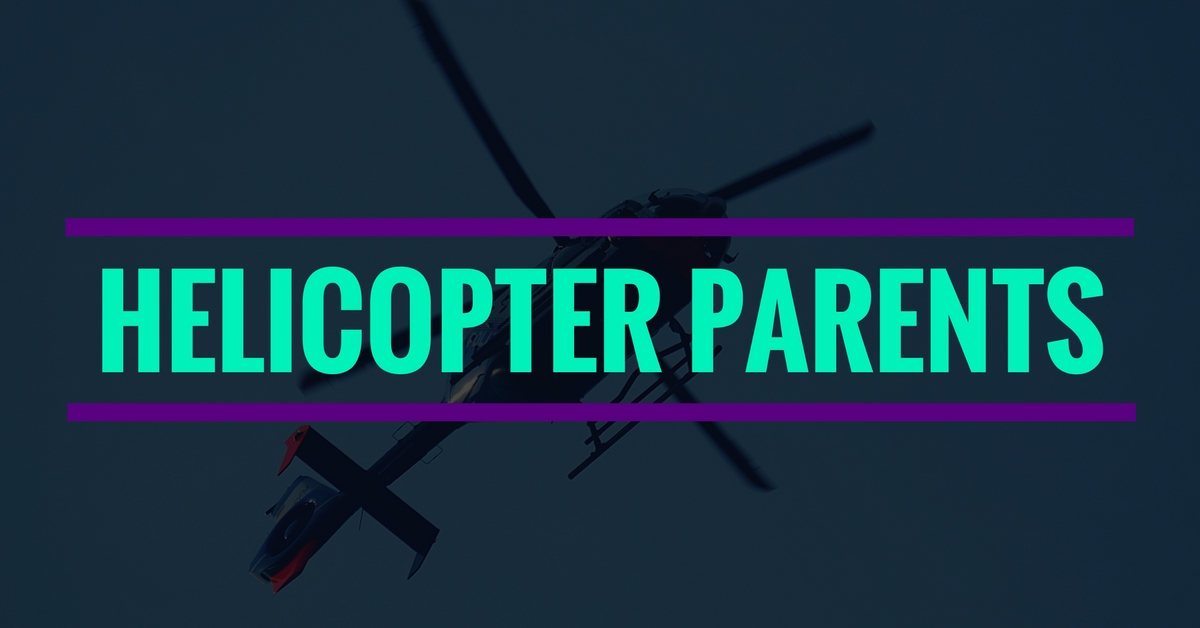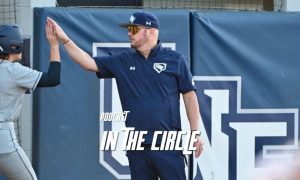Are You a Helicopter Softball Parent?

The definition of a helicopter parent is “a parent who takes an overprotective or excessive interest in the life of their child or children.” Helicopter parents also exist in the softball world. It’s okay for softball parents to get involved, in fact, they are needed, especially at the younger age levels. There is a fine line between being involved and being over-involved.
Helicopter parents in softball, often find themselves in coaching roles at the younger age levels. They may not even be categorized into the “helicopter category” at this point because it’s too early on. It can be easy to become invested in your softball player at the younger age levels. This is when the game is fun, and parent coaches thrive on teaching young players the basic skills needed to be successful in a game as they get older.
Softball pitcher parents are often the ringleaders of the helicopter parents. Pitching is one of the most important elements of the game of softball. It’s also the position on the field that draws the most college scholarships because teams need pitchers at the next level to have a shot at being successful. Softball pitchers and their parents spend additional money and time throughout the younger years, in practice and private lessons to further develop and perfect the craft. It’s easy for pitcher parents to become overly invested in their athlete. All parents should want to see their daughter succeed. However, there is a fine line, and parents can get carried away with the amount of practice they put in outside of team ones.
This is an article that normally shows up for our subscribers. We are offering it free today. If you like it, please consider joining the “Inner Circle”. You will also get access to our Fastpitch Trainer which is full of training tips and allows you to connect and communicate with our coaches. Join here!
If you are reading this article and are wondering if you fall into the helicopter softball parent category, here are a few ways to tell. Helicopter softball parents may start to become pushy with practice. They will force and encourage their daughter to practice, no matter the age, when they want to, not necessarily when their daughter wants to. They often ignore the hesitancy from their daughter who would rather do anything else that day over practicing. They are also the parents you can hear from the stands or who find themselves too close to the dugout on game days. These are the parents who have a hard time letting the coach do their job, because they put so much practice in with their daughter, in their mind, they are her coach, or they think they know more and for that reason, their daughter will listen to them.
Helicopter softball parents will try to be involved in everything they can. Whether they are a coach or not, they will often serve as a volunteer parent coach so they can be on the field at practice or in the dugout on game days. They just can’t help themselves and want to be more involved while they can. Once softball players reach the college level, parent involvement is non-existent. There are no parent coaches, parent volunteers, parent board members, nothing. At the college level, the players belong to the coaches, and you will often find that players in college step up and elevate their game. Could this be because they are finally freed from the grasp and the pressure brought on by their helicopter softball parents over the years?
Helicopter softball parents put a great deal of pressure on their athletes to perform. This usually occurs because the parents have put so much of their own time, money, and energy into developing their player and expectations are high. It is encouraged that parents learn balance. When players are young, they may need a little push to practice and have their skills analyzed without over-doing it. Softball players don’t need video taken of every single pitch, swing, or rep they take in games or at practice. Parents who usually do this, be cautious, as over-analyzing video of softball players can often lead to confusion and over-thinking by the athlete. When this happens, their skills will suffer, and they will be unable to perform.
Helicopter softball parents, this article wasn’t written to bash you or to banish you from doing your job as a softball parent, but rather to bring awareness to a hot topic among coaches and players at all levels of the game. There is always a way to show your athlete support, whether it’s her parent, coach, catcher, cheerleader, fan, supporter, confidant, listener, advice giver, etc. It’s important to have an open dialogue with your athlete and to take her voice and insight into consideration. Many parents find a new love and joy for the game when they retire from coaching and can sit back, relax and just be a fan on the sidelines. Keep in mind that it’s going to happen eventually, at the next level, if you don’t push her out of the sport before then.







